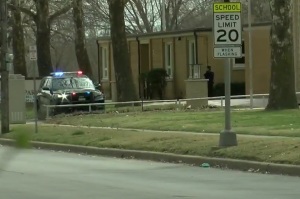Court Rules ISP Allowed to Intercept, Use Emails
A federal appeals court ruled on Tuesday that the operator of a small internet service provider did not commit any crimes when he used code to intercept and copy emails processed through his company. The ruling may have broader implications on the customer’s right to communication privacy, setting the precedent for email to become more widely accessible.
The ruling was passed down by the U.S. Court of Appeals for the First Circuit in Massachusetts in favor of Bradford C. Councilman. Government prosecutors had alleged that Bradford was violating both the Electronics Communications Privacy Act and the Wiretap Act through his actions at Interloc Inc. The court ruled that the Wiretap Act does not apply to “communications in electronic storage” as in the case of Interloc Inc.
According to the government prosecutors, Councilman ordered his employees in January 1998 to write code that intercepts customer email, producing a duplicate copy for the Interloc records. The emails intercepted contained purchase information from Amazon.com, which the company hoped to compile to analyze customer book purchase trends. The original emails were delivered to the customers unaware of the Interloc ploy.
In the 2-1 Appeals court decision, the court ruled the Wiretap Act law was written before several technology advances utilized by Councilman. The language was not worded precisely enough so that his actions would be a crime.
"The Wiretap Act's purpose was, and continues to be, to protect the privacy of communications," the court wrote in its majority opinion. "We believe that the language of the statute makes clear that Congress meant to give lesser protection to electronic communications than wire and oral communications. Moreover, at this juncture, much of the protection may have been eviscerated by the realities of modern technology.”
Several privacy groups have denounced the ruling, believing that the precedent could be set broader and more intrusive tactics by businesses and marketers.
Circuit Court Judge Kermit Lipez wrote in his dissenting opinion, “the line that we draw in this case will have far-reaching effects on personal privacy and security.”
"In short, Councilman's approach to the Wiretap Act would undo decades of practice and precedent regarding the scope of the Wiretap Act and would essentially render the Act irrelevant to the protection of wire and electronic privacy," Lipez wrote. "Since I find it inconceivable that Congress could have intended such a result merely by omitting the term 'electronic storage' from its definition of 'electronic communication,' I respectfully dissent."
We will have to see whether the ruling will be appealed to a higher court for further consideration. However, privacy rights have taken yet another hit at the expense of unwitting consumers.





























